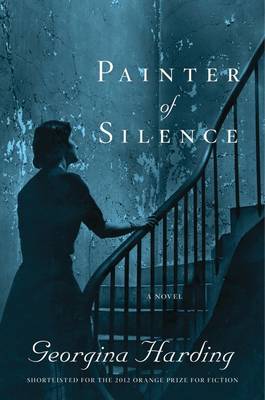Reviewed by Michael @ Knowledge Lost on
Communist Romania wouldn’t be the easiest place to live and author Georgina Harding builds this wonderfully artistic scene with real beauty but also despair and hopelessness. This took a little time to become accustomed with; the overuse of similes really made for a rough start in reading this book. It really felt like the word ‘like’ appeared on every second line, but when I started to get further into the novel I did find myself being swept away in this artistic world.
The unnamed name protagonist (who we eventually find out is Augustin) slowly pieces together his world through his art and we as readers are on this journey with him. Finding out. as he has, that he is the son of the Safta’s family cook and the special bond the two formed growing up together. I do not think Augustin is a mute, he just doesn’t speak, but this does not mean that he cannot communicate; each detailed drawing he produces proves this.
There was something unnatural about the plot that really didn’t sit well with me; the whole book Augustin communicates via drawings yet there is this feeling like you find out more about this character than you possibly can via a drawing. Is this pure speculation from the author? Or is there something I am missing? While it wasn’t a big concern, that really did end up bothering me about this book. I just felt like that whole part of the book was a little contrived, yet it really did not effect my enjoyment of the book as this was an afterthought.
This book was really well written, I do not like to use the word Readable but I think that does cover my thoughts on the style. I really liked the way this book ended up feeling like a piece of art with all the little details and yet it still managed to capture the mental and physical burdens of the characters living in this post-war town. I found myself drifting into the story as it floats along and I had to pull myself out so I could pay more attention; it’s a rare feeling and if I wasn’t trying to read critically I would have happily floated through this novel.
While the fact that this book wasn’t linear it never really got confusing, you get little memories and slowly it starts to reveal the bigger picture. While this could get frustrating I never felt as though this was the case with Painter of Silence. Sure, I could talk about how some parts of this novel felt forced and artificial, but I will be honest, none of that ended up bothering me.
You can try to pick apart this novel as much as you like but you will still be left with this beautiful piece of art. I really did enjoy the experience of reading Painter of Silence by Georgina Harding; it is one of those novels that will stick with you and you cannot help but remember its fond memories. It’s a lyrical journey worth taking, even if it is a little unrealistic; just enjoy the ride.
This review originally appeared on my blog; http://literary-exploration.com/2013/04/02/book-review-painter-of-silence/
Reading updates
- Started reading
- 18 March, 2013: Finished reading
- 18 March, 2013: Reviewed
